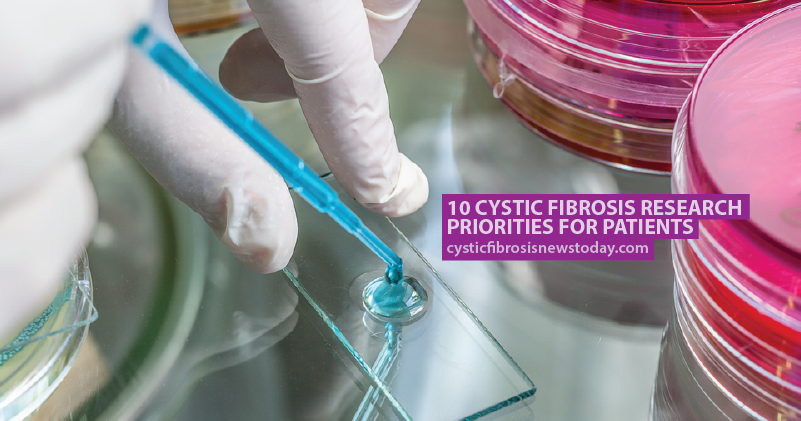10 Cystic Fibrosis Research Priorities for Patients

Medical research is important to improve treatments and hopefully find a cure for cystic fibrosis, but what do patients think scientists should be working on? The University of Nottingham conducted a survey among patients and healthcare professionals to find out what they thought were the most important areas cystic fibrosis researchers should be concentrating on.
Here are the results:
Simplifying treatment: How can the treatment burden of cystic fibrosis patients be simplified?
Treating GI symptoms: How can GI symptoms such as bloating, nausea and stomach pain be eased in cystic fibrosis patients?
Preventing lung disease progression: Which treatments are effective for cystic fibrosis patients in preventing or delaying lung disease progression in early life?
Find out more about the symptoms of cystic fibrosis.
Non-tuberculous mycobacterium: How best to treat non-tuberculous mycobacterium (NTM) in cystic fibrosis, which medications to use and when to start the treatment?
Treatment adherence: What effective methods of support, motivation, and technology can help CF patients improve their adherence to treatment?
CF-related diabetes: How can CF-related diabetes be prevented?
Find out more about CF-related diabetes here.
Chest physiotherapy: Could chest physiotherapy be replaced by exercise for CF patients?
Antibiotic use: Which combinations of antibiotics are best for CF exacerbations and what are the dosing plans? Should these be rotated?
Find out about seven types of airway clearance techniques here.
Antibiotic resistance: Can the negative effects of antibiotics such as side effects and resistance risk be reduced in CF patients?
Pseudomonas Aeruginosa: How can Pseudomonas aeruginosa be eradicated in CF patients?
Find out more about pseudomonas aeruginosa here.
Cystic Fibrosis News Today is strictly a news and information website about the disease. It does not provide medical advice, diagnosis or treatment. This content is not intended to be a substitute for professional medical advice, diagnosis, or treatment. Always seek the advice of your physician or other qualified health provider with any questions you may have regarding a medical condition. Never disregard professional medical advice or delay in seeking it because of something you have read on this website.







